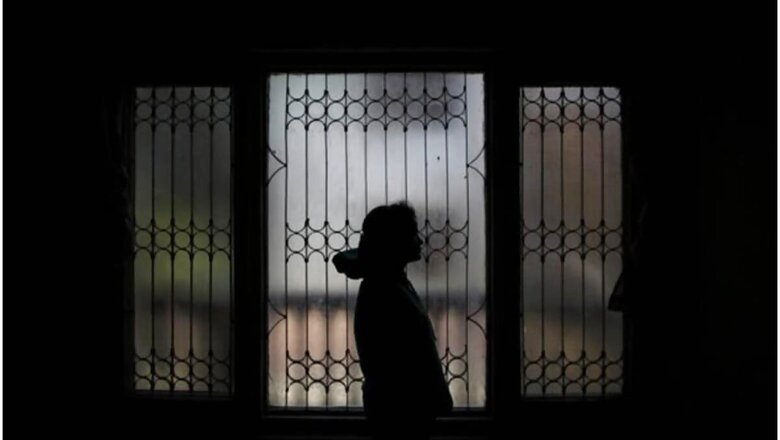
views
A United States body on religious freedom in its latest report has been scathing in its criticism of Pakistan and China over the appalling condition of the minority communities in the two Asian nations, pointing out widespread instances of forced conversions, sexual assault, slavery and torture.
Stating that underage girls from the Hindu, Sikh and Christian communities continue to be kidnapped for conversion to Islam, the United States Commission on International Religious Freedom (USCIRF) in its annual report released on Thursday said that around 1,000 such incidents occur in the country every year.
“In Hindu, Christian, and Sikh communities, young women, often underage, continued to be kidnapped for forced conversion to Islam. Several independent institutions estimated that 1,000 women are forcibly converted to Islam each year; many are kidnapped, forcibly married, and subjected to rape. Local police, particularly in Punjab and Sindh, are often accused of complicity in these cases by failing to investigate them properly,” the report says.
If the cases of rape and conversion are investigated or adjudicated, the women are reportedly questioned in front of the men they were forced to marry, creating pressure to deny coercion, it goes on to say.
“In October 2019, the Sindh Government rejected a bill seeking to criminalize forced conversion. Religious minorities also faced broader social discrimination, with reports of economic boycotts,” says the report.
Concentration camps
The findings on China say the country has detained around 1.8 million Uighur, Kazakh and Kyrgyz Muslims in over 1,300 concentration camps across the Xinjiang province where they are subjected to the worst forms of torture, whereas half a million children have also been separated from their parents.
“Independent experts estimate that between 900,000 and 1.8 million Uighur, Kazakh, Kyrgyz, and other Muslims have been detained in more than 1,300 concentration camps in Xinjiang. Individuals have been sent to the camps for wearing long beards, refusing alcohol, or other behaviors authorities deem to be signs of ‘religious extremism’. Former detainees report that they suffered torture, rape, sterilization, and other abuses,” reads the report. It goes on to say that the religious freedom conditions in China continue to deteriorate. For Pakistan, it recommends that the nation be placed in the list of countries of particular concern, as religious freedom there continues to trend negatively.
The report says that the systematic enforcement of blasphemy and anti-Ahmadiyya laws, and Pakistani authorities’ failure to address forced conversions of religious minorities—including Hindus, Christians, and Sikhs—to Islam, severely restricted freedom of religion or belief.
“While there were high-profile acquittals, the blasphemy law remained in effect. USCIRF is aware of nearly 80 individuals who remained imprisoned for blasphemy, with at least half facing a life sentence or death,” the USCIRF report reads.
It says that after spending five years in solitary confinement for allegedly posting blasphemous content online, Junaid Hafeez was given the death sentence in December 2019.
“Many ongoing trials related to blasphemy experienced lengthy delays as cases were moved between judges. Moreover, these laws create a culture of impunity for violent attacks following accusations. In March 2019, a student murdered Professor Khalid Hameed over perceived ‘anti-Islamic’ remarks,” it says.
Mob attacks
The USCIRF further points out that protesters in Sindh attacked and burned Hindu shops and houses of worship following two incidents.
“In the first, a cleric accused a Hindu veterinarian of wrapping medicine with paper printed with Quranic verses; in the second, a student levelled blasphemy charges against a Hindu principal. A mob also attacked a Christian community in Punjab after a mosque claimed over its loudspeaker that the community had insulted Islam,” the report reads.
It says that in another incident, nearly 200 Christian families in Karachi were forced to flee their homes due to mob attacks after false blasphemy accusations against four Christian women.
The report says that the Ahmadi Muslims, with their faith essentially criminalised, continue to face severe persecution from authorities as well as societal harassment due to their beliefs, with both the authorities and mobs targeting their houses of worship.
“In October, for example, police partially demolished a 70-year-old Ahmadiyya mosque in Punjab,” it says.
Surveillance state
The report also accuses the Chinese government of creating a high-tech surveillance state, utilising facial recognition and artificial intelligence to monitor religious minorities.
“On April 1, a new regulation requiring religious venues to have legal representatives and professional accountants went into effect. Some smaller religious venues, especially in rural areas, found these requirements impossible to fulfil,” it observes.
According to the USCIRF findings, during 2019, the camps increasingly transitioned from re-education to forced labour as detainees were compelled to work in cotton and textile factories.
“Outside the camps, the government continued to deploy officials to live with Muslim families and to report on any signs of “extremist” religious behavior,” the report says.
It says that authorities in Xinjiang and other parts of China have destroyed or damaged thousands of mosques and removed Arabic-language signs from Muslim businesses.
“The Chinese government continued to pursue a strategy of forced assimilation and suppression of Tibetan Buddhism, as demonstrated by the laws designed to control the next reincarnation of His Holiness the Dalai Lama and those of other Tibetan eminent lamas. Monks and nuns who refused to denounce the Dalai Lama have been expelled from their monasteries, imprisoned, and tortured,” it says.
The report mentions that in protest of repressive government policies, at least 156 Tibetans have self-immolated since February 2009.
“Chinese authorities raided or closed down hundreds of Protestant house churches in 2019, including Rock Church in Henan Province and Shouwang Church in Beijing. The government released some of the Early Rain Covenant Church congregants who had been arrested in December 2018, but in December 2019 a court charged Pastor Wang Yi with ‘subversion of state power’ and sentenced him to nine years imprisonment,” it points out.
The local authorities continued to harass and detain bishops, including Guo Xijin and Cui Tai, who refused to join the state-affiliated Catholic association, it says.
Bounties
Several local governments, including Guangzhou city, offered cash bounties for individuals who informed on underground churches, according to the findings. In addition, authorities across the country have removed crosses from churches, banned youth under the age of 18 from participating in religious services, and replaced images of Jesus Christ or the Virgin Mary with pictures of President Xi Jinping, they say.
“According to reports, thousands of Falun Gong practitioners were arrested during 2019 for practicing the movement’s meditation exercises or distributing literature about their beliefs. Human rights advocates and scientists presented evidence that the practice of harvesting organs from prisoners—many of whom are believed to be Falun Gong practitioners—continued on a significant scale,” the USCIRF report says. “In addition, there were widespread reports that authorities across China demolished Mahayana Buddhist, Daoist, and Confucian statues it claimed were ‘unauthorized’.”
Read all the Latest News, Breaking News and Coronavirus News here. Follow us on Facebook, Twitter and Telegram.




















Comments
0 comment